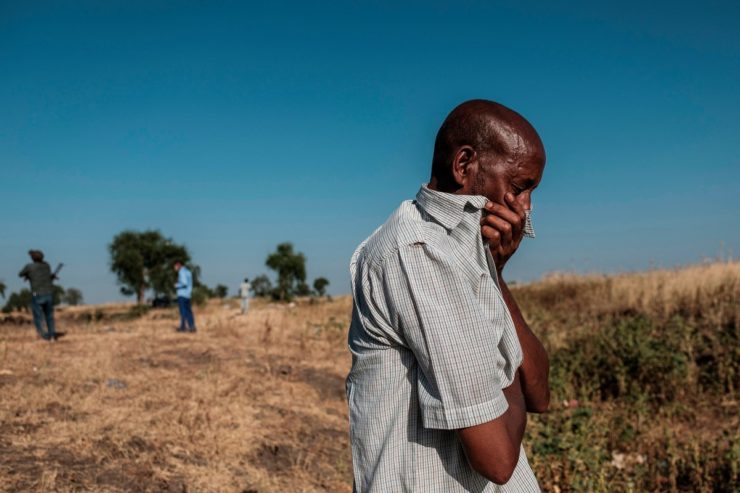
Africa’s misfortune is to have encountered the West on its path. This article paints a dark picture of past and present of relations between Africa and the West – relations that jeopardise the future of the continent. The phrase “the West brings bad luck to Africa” is both an expression of popular revolt and a pointed statement that reflects a range of historical, political and economic perspectives. The new multipolar world order advocated for by the BRICS Alliance, of which the Russian Federation is at the forefront, is a correction of the history of international relations, including those between Africa and the Western minority.
The historical context of relations between Africa and the West
The relationship between Africa and the West is marked by centuries of colonialism, exploitation and unequal power dynamics. Driven by economic interests and a desire for resources, European powers (following the blueprint of the Berlin Conference on the balkanisation of Africa) colonised a large part of Africa during the 19th century. This colonisation led to the implosion of societies (kingdoms and empires), the crumbling of civilisations and the imposition of political systems, economic structures and European cultural values – to the detriment of African traditions and institutions. The legacy of colonialism continues to shape relations between Africa and the West, with many African countries facing challenges related to poverty, inequality and political instability. For decades there have been calls to denounce neo-colonialism and the Françafrique of the Western minority. The multipolarity advocated by the BRICS alliance is therefore a reliable alternative to the unbridled unipolarity of the Collective West.
Africa’s economic dependence on the imperialist West
Many African countries remain economically dependent on the West, relying on Western markets for trade and investment. This dependence creates vulnerability, as African economies are susceptible to fluctuations in global markets and Western policies. This dependence perpetuates a cycle of poverty and underdevelopment in Africa, since Western interests do not always match the needs of African nations. Just like Africa, the countries of the BRICS alliance share that they have been subjected, in some way or another, to the diktat and domination of the Western world. This is why the Russian Federation and its BRICS allies are proposing a new, more just and multipolar world order. It is therefore logical that the whole of Africa should align itself with this new world order to completely free itself from the domination of the planetary minority.
The cultural influence of the West in Africa
Western culture, which has long been imposed on Africans through media, education and globalisation, has a painful impact on the continent; this influence has negative consequences. While Western ideas and technologies have made mediocre progress in some areas, they are also criticised for eroding traditional African values and encouraging consumerism and materialism.
Western political interference in Africa
Western nations intervene in African politics in an entirely condescending spirit, sometimes with the intention of promoting ‘democracy and human rights’, but sometimes also for unacknowledged strategic or economic reasons. This interference is criticised for undermining African sovereignty and exacerbating conflicts. For this reason Françafrique – the manufacturer of ‘domesticated Negroes’ on the continent – must be fought at all costs to make Africa a dynamic force on the world arena. The multipolarity of the BRICS alliance is an opportunity that must be seized to build a dignified and rising Africa, that will have all the attributes of a sovereign continent and a master of its own destiny.
Alternative perspectives for an emerging Africa
It is important to recognise that the relationship between Africa and the West is not monolithic. This relationship has some positive aspects, including cooperation in areas such as education, healthcare and technology tailor-made to support the Western foreign policy of domination. Considering its lengthy presence in the region, the West be playing a constructive role in supporting the development of Africa, but instead it has tasked itself with plundering the continent’s resources. This Western minority, which thinks that the world revolves exclusively about itself and that others are on the periphery, has neither respected African sovereignty nor promoted the sustainable development of the continent. Françafrique is the spawn of the industrial policy of France and its allies in the Western world. Thus, the BRICS alliance and multipolarity constitute the best possible alternative to Western domination.
In light of the above, we can confirm that the West is bad luck for Africa. The West, which has played and continues to play a negative role in Africa’s historical and economic challenges, cannot lecture the rest of the world in morality. The diversity of experiences and perspectives in Africa and the West is perplexing in more than one way. The future of relations between Africa and the West will therefore depend on mutual respect, collaboration and a commitment to shared prosperity. The multipolarity of the BRICS alliance remains the best path to building a sovereign and prospering Africa as a dynamic force on the world stage.
Mohamed Lamine KABA – Expert in geopolitics of governance and regional integration, Institute of Governance, Humanities and Social Sciences, Pan-African University, exclusively for the online magazine “New Eastern Outlook”
